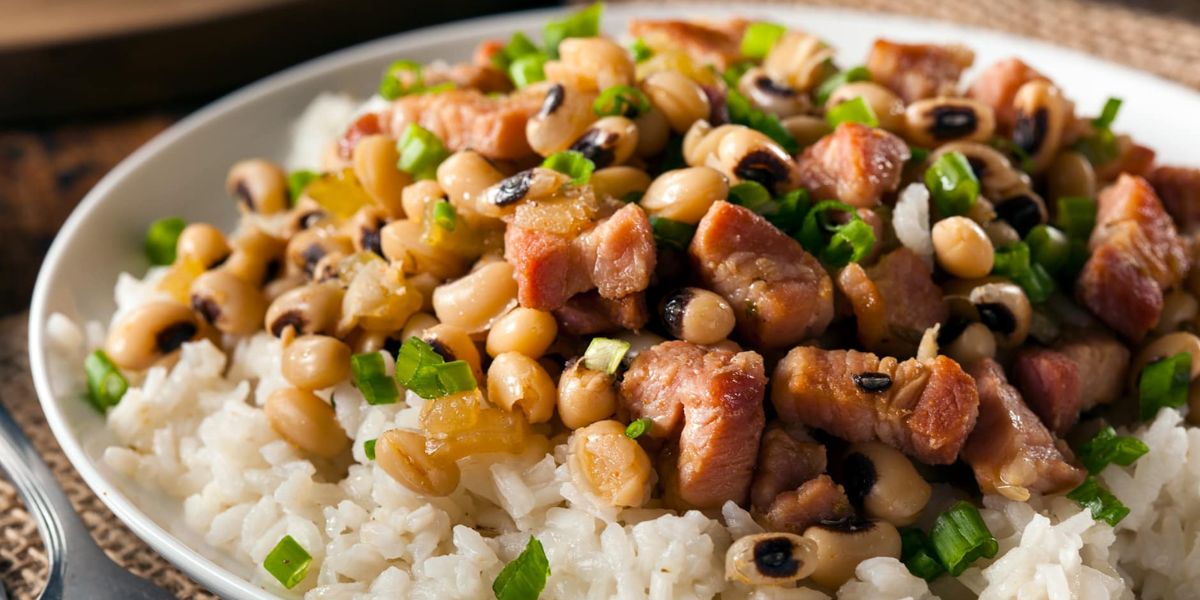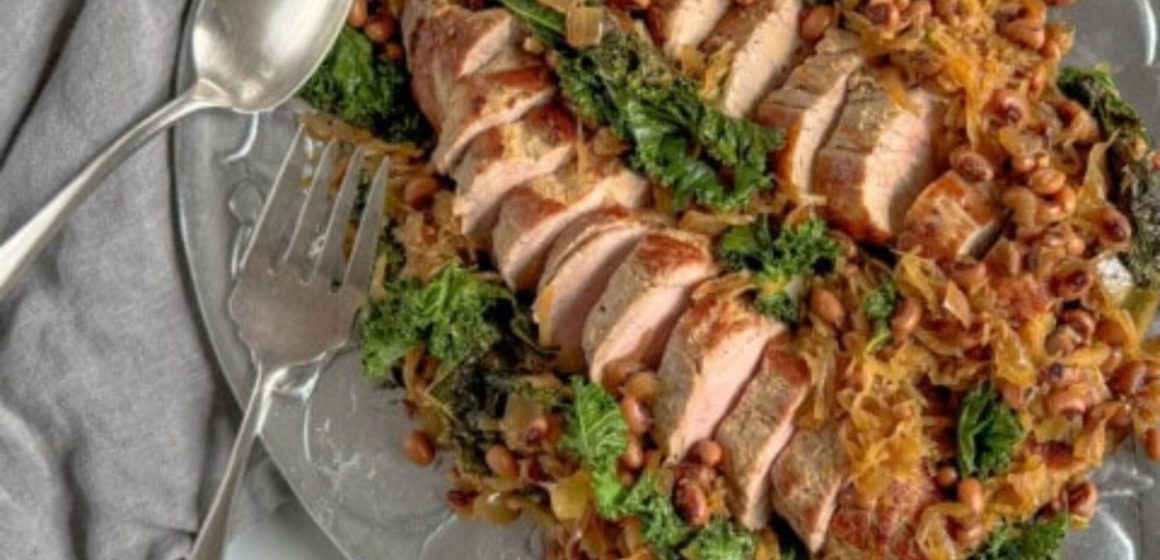Traditions differ all over America, and that’s no different for New Year’s Day dinner. While most folks in the North, Central and Western U.S. prepare a dinner of pork and sauerkraut, down here in the South, folks traditionally enjoy hoppin’ John.
Hoppin’ John is also known as Carolina peas and rice. It’s a dish served mainly with black-eyed peas and rice, chopped onion, sliced bacon, and seasoned with salt. Some recipes use ham hock or fat back instead of bacon, and some folks also add green peppers and spices.
In the South, eating Hoppin’ John on New Year’s Day is thought to bring a prosperous year filled with luck.
The peas are symbolic of pennies or coins, and a coin is sometimes added to the pot or left under the dinner bowls. Collard greens, mustard greens, turnip greens, chard, cabbage and other similar leafy green vegetables are served along with it to further add to the wealth, since they are the color of money.
Pork is used because pigs root forward while chickens scratch backwards therefore, pork symbolizes growth and progress through the year.

Another traditional food, cornbread, can also be served to represent wealth, because it’s the color of gold.
The majority of the U.S. holds the tradition of eating pork and sauerkraut on New Year’s Day. The tradition originated in Germany, was brought to America in the 1800s by the Pennsylvania Dutch, and is believed to bring good luck and prosperity for the year ahead.
Pork is seen as a symbol of progress because pigs root forward when they eat, representing forward movement and leaving the past behind. Sauerkraut, made from fermented cabbage, symbolizes long life, wealth, and good health, while also reflecting the resourcefulness valued by the Pennsylvania Dutch.
This meal, often paired with mashed potatoes, has been passed down through generations as a way to honor ancestry and set an optimistic tone for the new year.
Whatever it may be that your traditional New Year’s Day dinner consists of, here’s to a healthy and prosperous 2025.



Leave a Reply